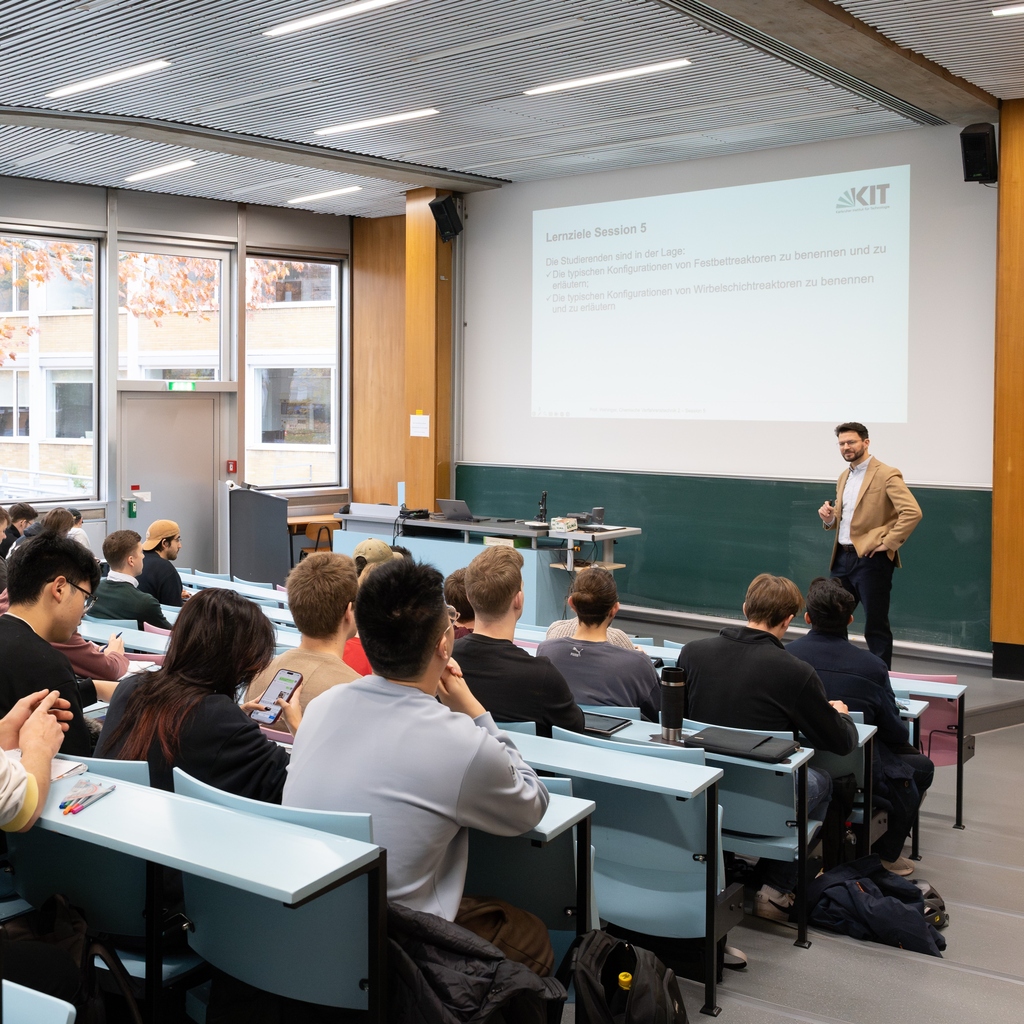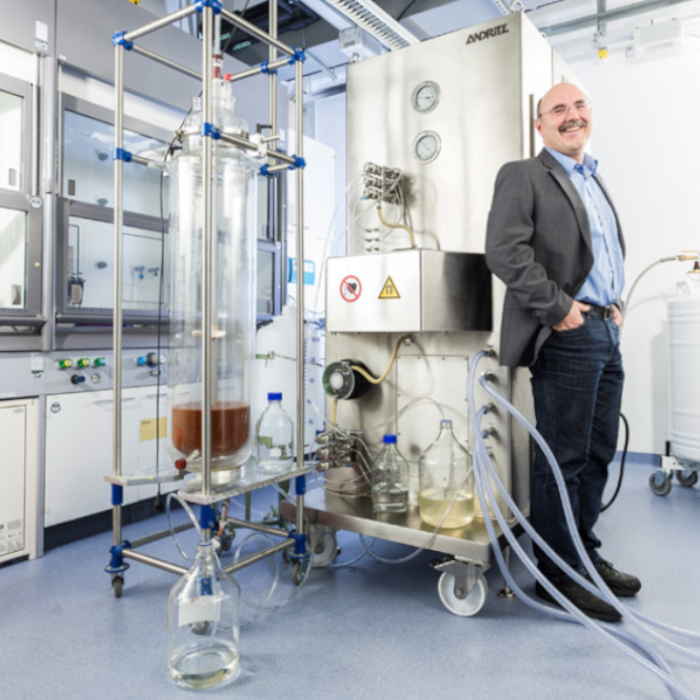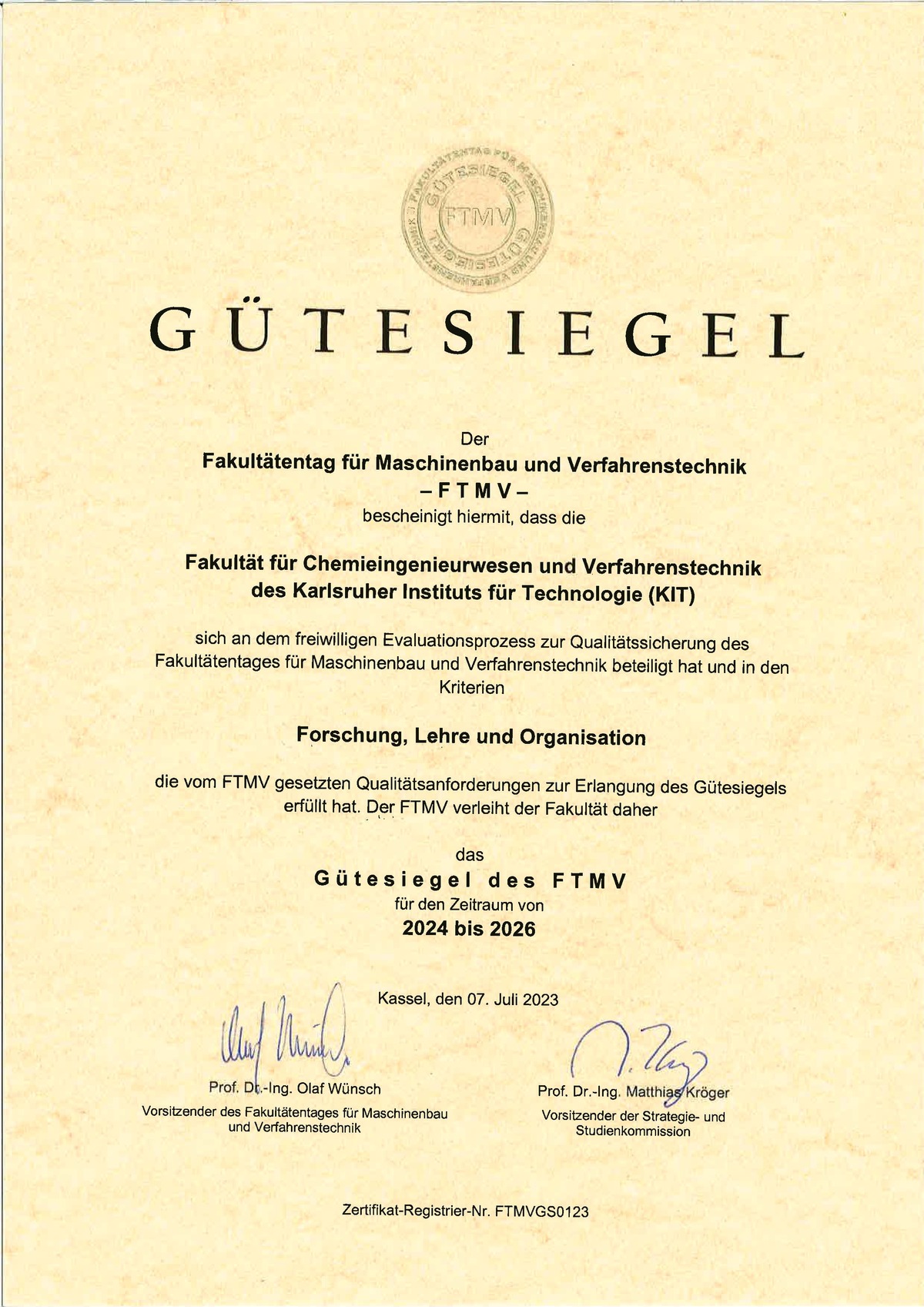- Our research is geared to the requirements of a resource-efficient and increasingly data-based industrial society
- With our research-based teaching, we qualify engineers for a sustainable economic society
- Our networking with innovative young and established companies, organizations and authorities ensures efficient knowledge and technology transfer.

With the research of its institutes, the KIT Faculty of Chemical Engineering and Process Engineering contributes significantly to raising the profile of KIT in the fields of societal demand for energy, mobility, and information. The nationally and internationally highly recognized research of the KIT Faculty covers process engineering issues from scientific fundamentals to technical applications and from laboratory experiments to pilot plants.
More information
With 27 professorships, the KIT Faculty of Chemical Engineering and Process Engineering is one of the most recognized in its field worldwide. Approximately 1,400 students are currently enrolled in the consecutive bachelor's and master's degree programs in Chemical Engineering and Process Engineering (CIW/VT) and Bioengineering (BIW), of which about 35% are female students.
More information
Due to its research and teaching at the interface between engineering and the natural sciences, the KIT Faculty of Chemical Engineering and Process Engineering is predestined for the realization of innovation as the third pillar of the KIT mission.
Successfully certified - FTMV seal of quality
The Faculty Association of Mechanical and Process Engineering awards the FTMV e.V. seal of quality to faculties / departments of mechanical and process engineering for meeting quality requirements in teaching, research and organisation.
Once again, the KIT Department of Chemical and Process Engineering receives the FTMV seal of quality after a voluntary evaluation process for quality assurance, which certifies high quality in research, teaching and organisation. For this purpose, extensive data from research, teaching and administration are collected every year, including for example the number and quality of publications, third-party funding totals, number of doctorates or gender-related issues.

